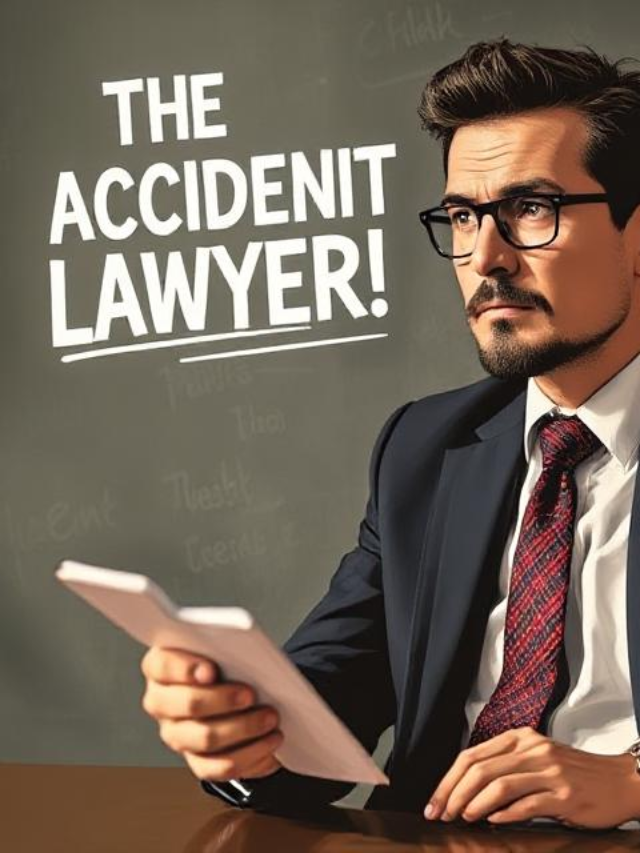An offshore accident lawyer plays a crucial role in protecting the rights of offshore workers who sustain injuries-How can an offshore accident lawyer assist me? while performing their job duties. These legal professionals specialize in maritime law, which governs incidents that occur on navigable waters, including oil rigs, cargo ships, commercial fishing vessels, and other offshore facilities. Their primary objective is to help injured workers obtain the compensation they deserve for medical expenses, lost wages, pain and suffering, and other damages resulting from the accident.
One of the primary ways an offshore accident lawyer assists injured workers is by helping them navigate the complexities of maritime law. Unlike traditional workers’ compensation laws that apply to land-based employees, offshore workers fall under federal laws such as the Jones Act, the Longshore and Harbor Workers’ Compensation Act (LHWCA), and the Death on the High Seas Act (DOHSA). Each of these laws has unique provisions and requirements, and a skilled attorney ensures that an injured worker files the appropriate claim under the correct legal framework.
Under the Jones Act, seamen who suffer injuries due to their employer’s negligence have the right to file a lawsuit for damages. An offshore accident lawyer helps gather evidence to prove employer negligence, such as unsafe working conditions, inadequate training, defective equipment, or failure to provide proper safety gear. The attorney negotiates with the employer and their insurance company to secure a fair settlement and, if necessary, represents the injured worker in court to fight for maximum compensation.
For dockworkers, harbor workers, and other maritime employees who do not qualify as seamen under the Jones Act, the Longshore and Harbor Workers’ Compensation Act (LHWCA) provides benefits for injuries sustained while working near or on navigable waters. An offshore accident lawyer assists in filing claims under the LHWCA, ensuring that the injured worker receives compensation for medical treatment, rehabilitation, disability benefits, and lost wages.
In cases where an offshore worker loses their life due to an accident, the Death on the High Seas Act (DOHSA) allows surviving family members to pursue compensation for their loss. An offshore accident lawyer helps families file claims and recover damages for funeral expenses, loss of financial support, and emotional distress. The lawyer works tirelessly to hold negligent parties accountable, whether it be the employer, vessel owner, or third-party contractor responsible for the accident.
Another critical area where an offshore accident lawyer provides assistance is in maintenance and cure claims. Under maritime law, injured seamen are entitled to maintenance (daily living expenses) and cure (medical expenses) until they reach maximum medical improvement. However, many employers attempt to minimize or deny these benefits. A skilled attorney fights to ensure that injured workers receive the full extent of their entitled benefits, covering medical bills, rent, utilities, and other necessary expenses.
Offshore accident lawyers also help clients deal with unseaworthiness claims. Employers are required to maintain a seaworthy vessel, meaning that the ship and its equipment must be safe and suitable for use. If an unseaworthy vessel contributes to an offshore accident, an attorney can file a claim on behalf of the injured worker, holding the vessel owner accountable for the unsafe conditions.
In addition to legal representation, an offshore accident lawyer assists clients in gathering crucial evidence to support their claims. This includes obtaining witness statements, securing safety reports, analyzing maintenance records, and working with medical professionals to assess the full extent of injuries. The lawyer also negotiates with insurance companies, ensuring that the injured worker is not pressured into accepting a lowball settlement that fails to cover long-term expenses.
Another significant way an offshore accident lawyer provides assistance is by protecting workers from retaliation. Many injured offshore workers fear losing their jobs or facing discrimination for filing a claim. A maritime attorney ensures that their clients are protected under whistleblower and anti-retaliation laws, preventing employers from taking adverse actions against them.
Moreover, offshore accident lawyers offer guidance on third-party liability claims. In some cases, a third party, such as an equipment manufacturer, subcontractor, or another company operating on the offshore platform, may be responsible for the accident. The lawyer investigates all potential avenues for compensation, ensuring that all liable parties are held accountable.
Workers who suffer from catastrophic injuries, such as burns, traumatic brain injuries, spinal cord damage, amputations, or exposure to hazardous substances, require extensive medical care and long-term support. An experienced offshore accident lawyer works to secure compensation that covers future medical expenses, physical therapy, assistive devices, home modifications, and lost earning capacity.
Additionally, offshore accident lawyers stay up to date with evolving maritime laws and industry regulations. They provide invaluable legal advice to offshore workers, ensuring that they understand their rights and the best course of action following an accident. By working with a knowledgeable attorney, injured workers can focus on their recovery while the lawyer handles the legal complexities of their case.
In summary, an offshore accident lawyer provides comprehensive legal support to injured maritime workers, guiding them through the complexities of maritime law, fighting for fair compensation, and holding negligent parties accountable. Whether handling Jones Act claims, LHWCA claims, wrongful death cases, maintenance and cure disputes, or third-party liability cases, these attorneys play a vital role in ensuring justice for offshore workers and their families. If you or a loved one has been injured in an offshore accident, seeking the assistance of a qualified offshore accident lawyer can make a significant difference in obtaining the financial support needed for a full recovery.
- Common Offshore Accidents: Discuss different types of offshore accidents, such as falls, fires, explosions, equipment failures, and exposure to toxic chemicals, to help readers understand their risks.
- Steps to Take After an Offshore Accident: Guide workers on immediate actions, such as reporting the accident, seeking medical attention, documenting injuries, and contacting a lawyer.
- How Compensation is Calculated: Explain how factors like medical expenses, lost wages, pain and suffering, and future earnings impact the total compensation amount.
- Role of Insurance Companies: Describe how insurance companies often attempt to minimize payouts and how a lawyer can negotiate for fair settlements.
- Statute of Limitations for Offshore Injury Claims: Explain how long workers have to file a claim under maritime laws like the Jones Act and LHWCA.
- Employer Responsibilities in Offshore Safety: Outline the legal duties employers have to ensure a safe working environment for offshore workers.
- The Role of OSHA in Offshore Accidents: Discuss how the Occupational Safety and Health Administration (OSHA) regulates workplace safety in the maritime industry.
- Psychological Impact of Offshore Accidents: Highlight how injuries not only cause physical damage but can also lead to PTSD, anxiety, and depression.
- Legal Differences Between Onshore and Offshore Accidents: Explain how laws protecting offshore workers differ from traditional workers’ compensation laws.
- How Offshore Workers Can Protect Their Rights: Provide guidance on keeping records, reporting hazards, and seeking legal representation if mistreated.
- Why Hiring a Specialized Offshore Accident Lawyer Matters: Explain why general personal injury lawyers may not be the best choice for maritime accident cases.
- Compensation for Permanent Disability in Offshore Injuries: Detail how workers with life-changing injuries can secure long-term financial support.
- How a Lawyer Proves Negligence in Offshore Accidents: Discuss the methods attorneys use, such as expert testimony, accident reconstructions, and maintenance records.
- Maritime Safety Regulations and Violations: Explain how violations of Coast Guard or maritime safety regulations can strengthen a worker’s injury claim.
- How Offshore Accidents Affect Families: Highlight the financial, emotional, and psychological effects on the families of injured or deceased workers.
- Common Defenses Employers Use Against Injury Claims: Outline tactics companies use to deny responsibility and how lawyers counter these arguments.
- The Importance of Witness Statements in Offshore Injury Cases: Discuss how co-worker testimonies can be crucial in proving liability in legal claims.
- Legal Protections Against Employer Retaliation: Explain how laws prevent companies from firing or discriminating against workers who file injury claims.
- How Maintenance and Cure Benefits Can Be Wrongfully Denied: Provide insight into how employers attempt to minimize or stop payments and how lawyers fight back.
- The Role of Expert Witnesses in Offshore Accident Lawsuits: Explain how medical, engineering, and industry experts help prove injury claims.
- Legal Rights of Foreign Offshore Workers: Discuss whether non-U.S. citizens working offshore can file claims under U.S. maritime laws.
- How Long it Takes to Settle an Offshore Injury Case: Give a realistic timeline of legal proceedings, from filing a claim to reaching a settlement.
- Maritime Law vs. Workers’ Compensation: Compare and contrast these two legal frameworks and when each applies.
- How Offshore Injury Claims Affect Future Employment: Address concerns workers may have about job prospects after filing a lawsuit.
- Wrongful Death Claims for Offshore Workers: Explain how families can seek compensation under maritime laws if a loved one dies in an offshore accident.
- Medical Treatment Rights for Injured Offshore Workers: Discuss an injured worker’s right to choose their own doctor instead of using company-approved physicians.
- How Pre-Existing Conditions Impact Offshore Injury Cases: Explain how prior injuries can complicate claims and how lawyers can address these issues.
- Third-Party Lawsuits in Offshore Accidents: Discuss when injured workers can sue equipment manufacturers or subcontractors for negligence.
- How to Maximize Compensation in Offshore Injury Claims: Provide tips on gathering evidence, hiring the right lawyer, and avoiding common legal mistakes.
- Offshore Injury Lawsuits vs. Settlements: Compare the pros and cons of settling a case versus taking it to court.
- How Weather Conditions Contribute to Offshore Accidents: Explain how rough seas, storms, and extreme weather increase the risk of workplace injuries.
- Future Career Options for Injured Offshore Workers: Offer guidance on vocational training and career changes for those unable to return to offshore work.
Share this with your friends and family!












